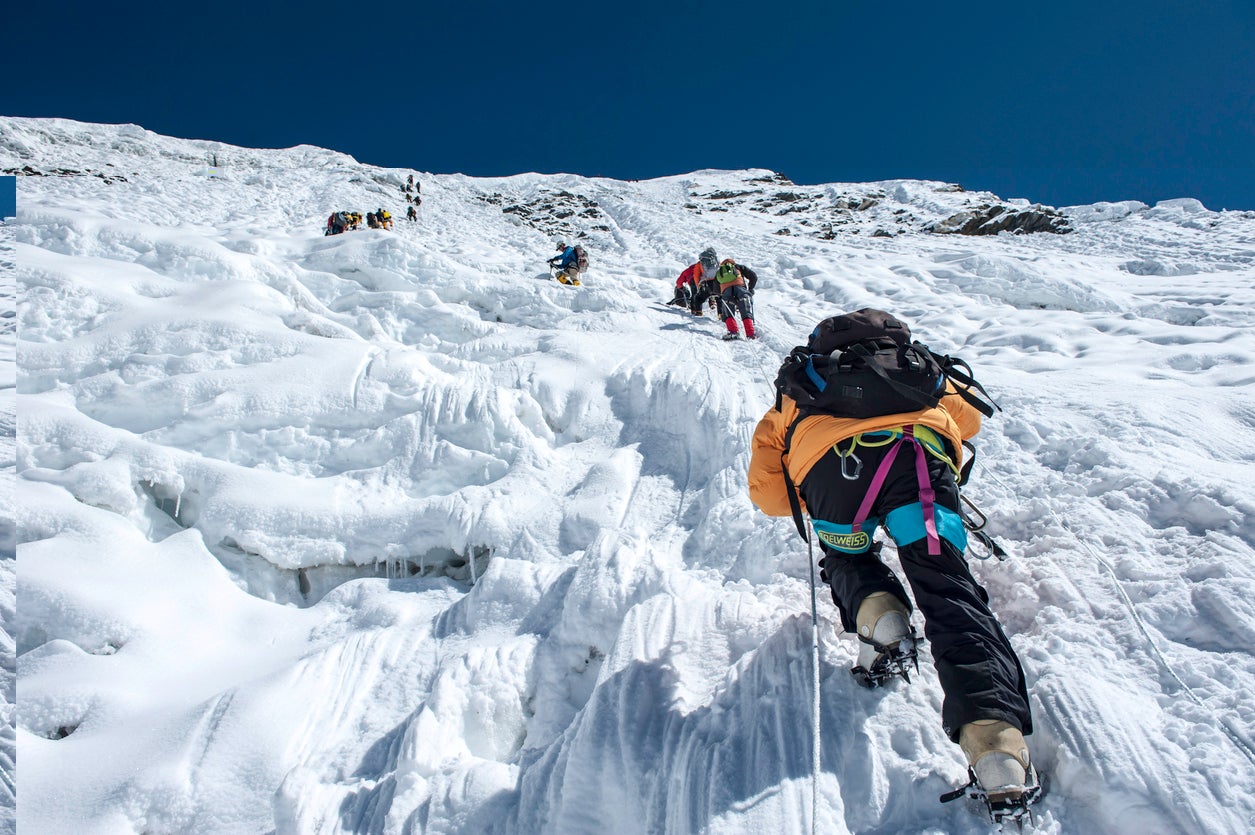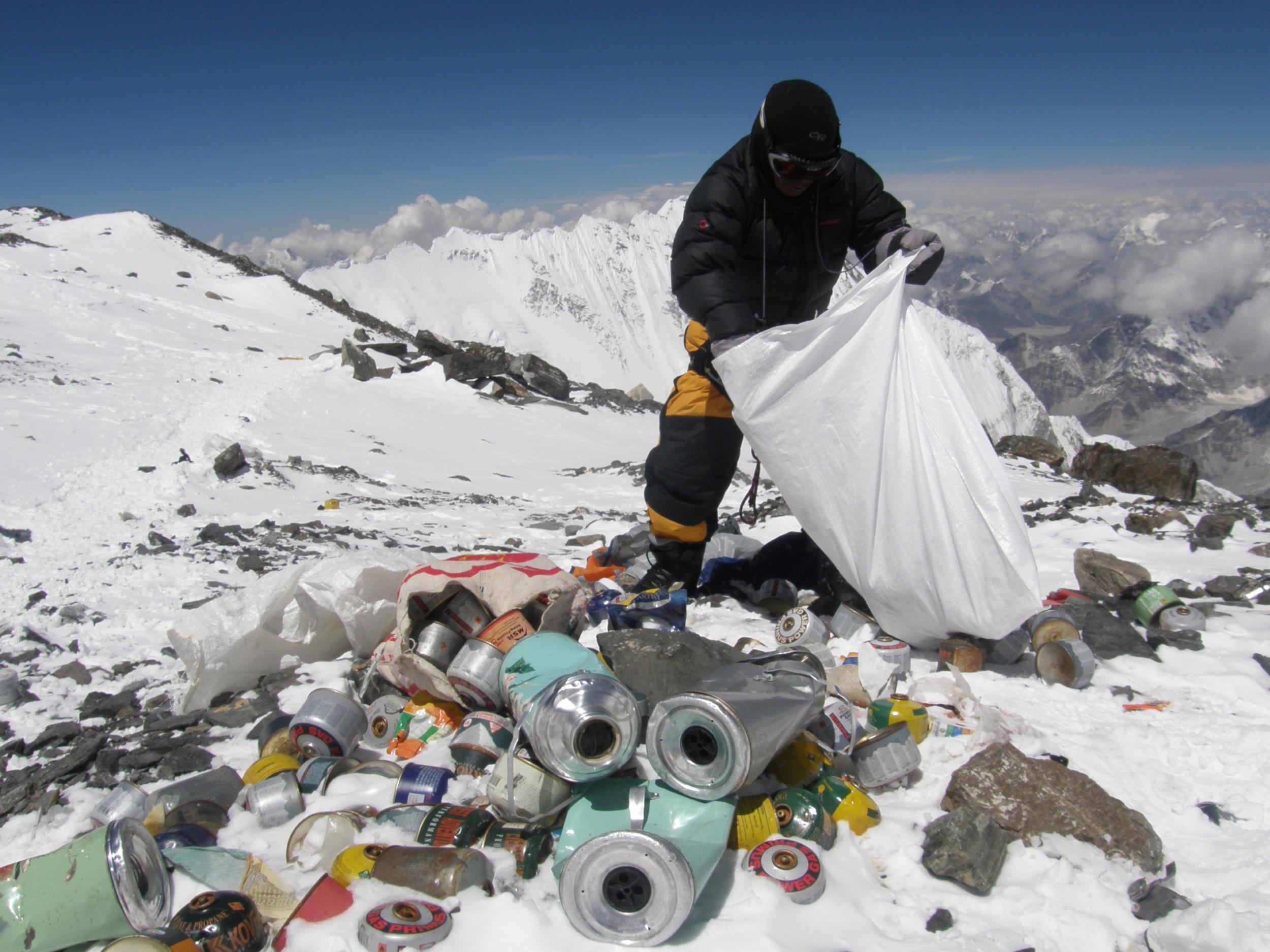A former Army officer is aiming to lead the fastest ever expedition to the summit of Mount Everest with the help of a rare gas that encourages the production of red blood cells.
Garth Miller, 51, will be attempting to reach the peak in just days rather than months with the help of Xenon - a gas sometimes used of rocket propellant - which could help mountaineers “pre-acclimatise” better to the mountain’s altitude.
Lukas Furtenbach, a leading mountain guide and climber from Austria, said a blend of the gas could make climbing the notoriously dangerous mountain safer and faster by boosting production of erythropoietin, a hormone that helps the creation of red blood cells, allowing the heart to transport more oxygen around the body.
Mr Miller, a British pilot and former officer in the Gurkhas, hopes that with the help of the gas, he will leave home on Monday morning and be back in time for Sunday lunch.
“I’m super-excited to see if we can leave home on a Monday morning, be on the summit of Everest on Thursday night, and make it home for Sunday lunch,” he told the Financial Times.

If the model proves successful, the seven-day package will cost around €150,000 (£124,000) for future climbers - factoring the £4,000 of Xenon for each person.
Mr Furtenbach has already put the gas to the test on Aconcagua in Argentina in 2020, and was convinced by its effects.
“I climbed a difficult route eight days from leaving Innsbruck, and had no problems on the summit,” he said. “I was standing there, thinking, ‘OK, this really works.’ I was totally convinced.”
Mr Miller then got in touch with Mr Furtenbach, and assembled a group of fellow veterans to carry out the pilot climb to fundraise for Scotty’s Little Soldiers, a charity for bereaved military children.
When a suitable weather window opens, the group will fly to Kathmandu and go straight to a health clinic where they will wear inhale xenon for 30 minutes.
They will then fly to base camp and within two hours, will begin their ascent. They hope to reach the peak in just four days and return within a week rather than the usual ten weeks the climb takes for most.

He said the gas allowed them to carry out the expedition as the group have kids and busy jobs they need to return to.
“It’s speed that unlocks this dream for us,” Miller said. But there has been concern that a shorter climb could exacerbate tourism and congestion on the mountain even further.
Mr Miller said: “Don’t mistake this for a team that is fast-tracking Everest without having put in the hard yard.”
“You don’t have to suffer to show respect for the mountain, and doing it faster doesn’t make it easier,” Miller added. “I would argue that the endeavour is greater. You can’t go higher, so going faster brings new and exciting challenges.”







